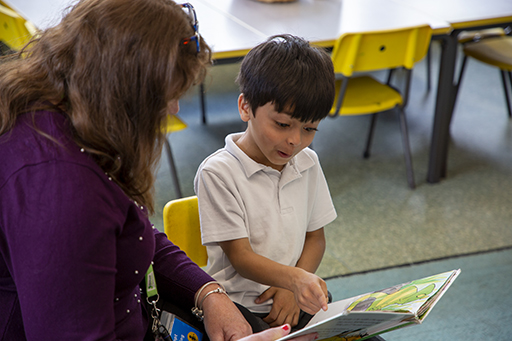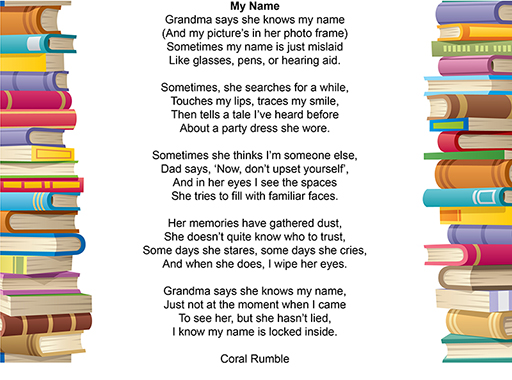8 The affective power of reading
Reading is often described as ‘affective’ – that is, the way in which you engage with the subject matter or narrative can evoke feelings, sensations and thoughts.
When deeply invested in a book, you can imagine yourself in the narrative. You develop relationships with the characters, albeit fictional, and come to understand situations from their perspectives. This process can add a new dimension to the way in which you view a situation, a historic event or social issue. Therefore, reading is a key vehicle for developing empathy.

The following poem in Figure 2 was written by Coral Rumble. As you read, reflect on the feelings and emotions it evokes.
Personal reflection 4
How did you feel when you read Coral Rumble’s poem?
- Did it conjure memories from your own lived experience?
- Did it evoke feelings, or sensation in your body?
- Can you identify the emotions you felt?
Comment
Different texts affect different people in different ways. Literature and poetry have the power to move people, to bring about a shift in thinking, both at an individual and a societal level. You will read more about the affective power of reading and empathy in Sessions 2 and 3.
Reading therefore broadens children’s perspectives. In the next section, you will explore this in more detail by seeing how, when children’s literature and other texts positively represent diversity, reading can be a powerful medium to promote equality and social justice.

